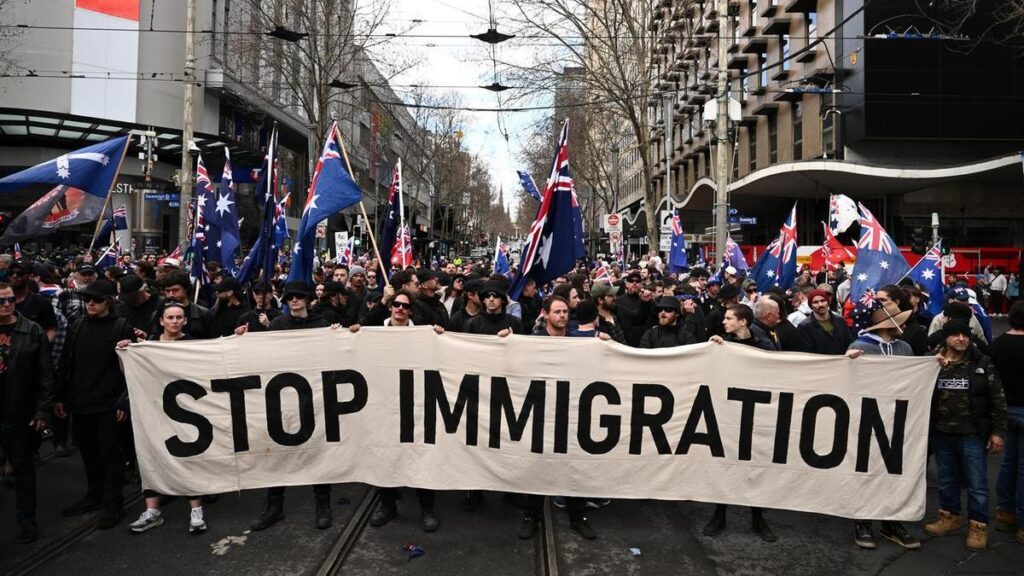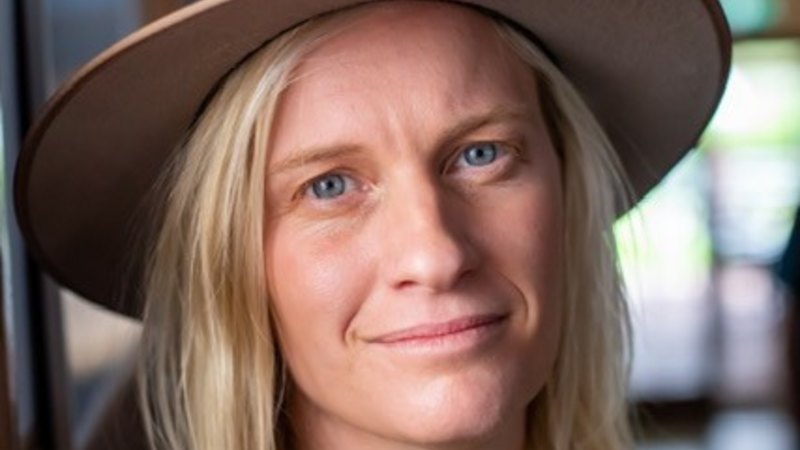
UPDATE: Thousands of Australians participated in anti-immigration rallies across the country this past weekend, raising urgent concerns about the potential recruitment of neo-Nazi groups. Experts warn that these demonstrations present a “prime opportunity” for extremism to flourish as Prime Minister Anthony Albanese calls for heightened vigilance against hate.
The rallies, which took place on October 14, 2023, saw massive turnouts in major cities like Sydney and Melbourne. While many attendees claimed to be there to express their views on immigration, the presence of known neo-Nazi groups has drawn significant condemnation from politicians and activists alike.
Terrorism expert Levi West from the Australian National University highlighted the overlap between general anti-immigration sentiments and extremist ideologies. He stated, “A rally that has a presence from a group like the neo-Nazi organisation presents a prime opportunity for recruitment,” emphasizing the vulnerability of individuals drawn to conspiracy theories and misinformation.
Prime Minister Albanese noted that while some participants may have good intentions, the overall tone of the rallies was troubling. In an interview with ABC News, he stated, “What we have here is neo-Nazis being given a platform,” and referred to the events as “hateful in some of the extreme examples.” Albanese pointed out that divisions within society have been exacerbated by these gatherings, urging the public to remain vigilant.
Opposition Leader Sussan Ley condemned the rallies as being “hijacked by violent neo-Nazis spouting hate and racism,” reaffirming that “extremism has no place in Australia.” Ley expressed the coalition’s readiness to collaborate with the government to restore social cohesion in the community.
The presence of politicians such as Pauline Hanson and Bob Katter at the rallies has further complicated the narrative. While many attendees identify as concerned citizens, experts warn that the rally’s environment could facilitate extremist recruitment, particularly among those expressing grievances related to immigration policies.
Multicultural affairs spokesman Paul Scarr echoed these sentiments, advocating for careful discourse about migration. He stated, “If we don’t have these debates in a considered and measured way, then unfortunately, the extremists will use the lack of debate and discussion to obtain a foothold.”
The implications of these rallies extend beyond mere protest. With social media amplifying polarizing views, Albanese emphasized the ease with which extremist ideologies can spread. “It’s much easier to organise through social media for people to have their views reinforced, often based upon things which aren’t just fact,” he warned.
As tensions rise, the ongoing discourse around immigration and extremism is set to intensify. Observers are urged to monitor for any shifts in public sentiment and the potential for further unrest. The government and opposition parties must act swiftly to address these issues before they escalate further in the coming weeks.
The situation remains fluid, and all eyes will be on how authorities respond to this growing trend of extremism stemming from public protests. For now, the nation watches as the lines between legitimate dissent and harmful ideology blur.






